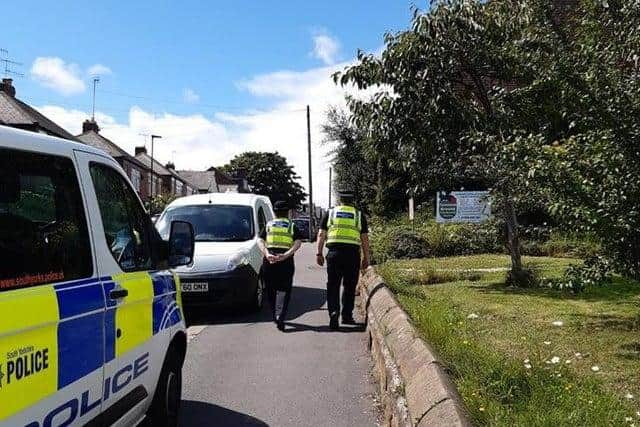Black people more likely to be stopped and searched by South Yorkshire Police than white people
and live on Freeview channel 276
With the highest number of stop and searches used across England and Wales for seven years, it is claimed the power is being used to disproportionately target the black community.
Home Office data shows officers in South Yorkshire carried out 16,226 stop and searches in the year to March – up from 6,166 the year before.


Advertisement
Hide AdAdvertisement
Hide AdThe figures show 18.6 per 1,000 black people were stopped, compared to 8.5 per 1,000 white people.
Alba Kapoor, policy officer at the Runnymede Trust, a race equality think tank, said: “That black people are so disproportionately targeted under stop and search shows a broken system in desperate need of repair.
“For as long as stop and search exists in its current form it will cause ongoing discrimination of BME communities at the hands of the police."
In South Yorkshire, 57 per cent of searches were conducted by officers looking for drugs, 14 per cent were for offensive weapons and one per cent for firearms.
Advertisement
Hide AdAdvertisement
Hide AdThe National Police Chiefs’ Council said the power is an ‘important tool’ to stop crime, and was responsible for the removal of 11,000 knives, firearms and other weapons from the streets last year.
Assistant Chief Constable Tim Forber, of South Yorkshire Police, said: “Our communities have told us they want to see us being more proactive against those involved in serious violent crime, drug offences, and serious acquisitive crimes such as theft and burglary. Stop and search is a vital tool in enabling us do just that.“It’s important every stop and search is conducted in a fair, transparent and professional manner. Our activity in this regard is subject to scrutiny by the PCC’s Independent Ethics Panel, who have had the opportunity to review not only data, but also the body worn video of stop and search encounters.
“We review stop and search statistics in order to understand the reasons behind any disproportionality in the members of the community that we search.
“This is a national issue, but some studies suggest that disproportionality is affected by interaction with communities who reside in areas with higher volumes of crime, which in turn may lead to the stop and search figures being disproportionate.”